第51章
"The closing paragraph be unfortunately worded," said Norman of Torn, "for because of it shall the King's messenger eat the King's message, and thus take back in his belly the answer of Norman of Torn." And crumpling the parchment in his hand, he advanced toward the royal emissary.
The knight whipped out his sword, but the Devil of Torn was even quicker, so that it seemed that the King's messenger had deliberately hurled his weapon across the room, so quickly did the outlaw disarm him.
And then Norman of Torn took the man by the neck with one powerful hand and, despite his struggles, and the beating of his mailed fists, bent him back upon the table, and there, forcing his teeth apart with the point of his sword, Norman of Torn rammed the King's message down the knight's throat; wax, parchment and all.
It was a crestfallen gentleman who rode forth from the castle of Torn a half hour later and spurred rapidly - in his head a more civil tongue.
When, two days later, he appeared before the King at Winchelsea and reported the outcome of his mission, Henry raged and stormed, swearing by all the saints in the calendar that Norman of Torn should hang for his effrontery before the snow flew again.
News of the fighting between the barons and the King's forces at Rochester, Battel and elsewhere reached the ears of Norman of Torn a few days after the coming of the King's message, but at the same time came other news which hastened his departure toward the south.This latter word was that Bertrade de Montfort and her mother, accompanied by Prince Philip, had landed at Dover, and that upon the same boat had come Peter of Colfax back to England -- the latter, doubtless reassured by the strong conviction, which held in the minds of all royalists at that time, of the certainty of victory for the royal arms in the impending conflict with the rebel barons.
Norman of Torn had determined that he would see Bertrade de Montfort once again, and clear his conscience by a frank avowal of his identity.He knew what the result must be.His experience with Joan de Tany had taught him that.But the fine sense of chivalry which ever dominated all his acts where the happiness or honor of women were concerned urged him to give himself over as a sacrifice upon the altar of a woman's pride, that it might be she who spurned and rejected; for, as it must appear now, it had been he whose love had grown cold.It was a bitter thing to contemplate, for not alone would the mighty pride of the man be lacerated, but a great love.
Two days before the start of the march, Spizo, the Spaniard, reported to the old man of Torn that he had overheard Father Claude ask Norman of Torn to come with his father to the priest's cottage the morning of the march to meet Simon de Montfort upon an important matter, but what the nature of the thing was the priest did not reveal to the outlaw.
This report seemed to please the little, grim, gray old man more than aught he had heard in several days; for it made it apparent that the priest had not as yet divulged the tenor of his conjecture to the Outlaw of Torn.
On the evening of the day preceding that set for the march south, a little, wiry figure, grim and gray, entered the cottage of Father Claude.No man knows what words passed between the good priest and his visitor nor the details of what befell within the four walls of the little cottage that night; but some half hour only elapsed before the little, grim, gray man emerged from the darkened interior and hastened upward upon the rocky trail into the hills, a cold smile of satisfaction on his lips.
The castle of Torn was filled with the rush and rattle of preparation early the following morning, for by eight o'clock the column was to march.The courtyard was filled with hurrying squires and lackeys.War horses were being groomed and caparisoned; sumpter beasts, snubbed to great posts, were being laden with the tents, bedding, and belongings of the men; while those already packed were wandering loose among the other animals and men.There was squealing, biting, kicking, and cursing as animals fouled one another with their loads, or brushed against some tethered war horse.
Squires were running hither and thither, or aiding their masters to don armor, lacing helm to hauberk, tying the points of ailette, coude, and rondel; buckling cuisse and jambe to thigh and leg.The open forges of armorer and smithy smoked and hissed, and the din of hammer on anvil rose above the thousand lesser noises of the castle courts, the shouting of commands, the rattle of steel, the ringing of iron hoof on stone flags, as these artificers hastened, sweating and cursing, through the eleventh hour repairs to armor, lance and sword, or to reset a shoe upon a refractory, plunging beast.